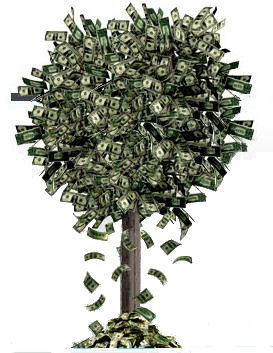Wednesday, April 04, 2012 9:04:50 PM
http://apps.americanbar.org/buslaw/blt/2004-07-08/boyea.shtml
Finally, an issuer should also be aware of what we will refer to as the "broker kickout" problem. When a Form 15 takes effect and there is subsequent cessation of periodic reporting by the issuer, brokers may "kick out" shares of an issuer's stock that were previously held in street name to the actual beneficial owners, thereby increasing the number of holders of record. (See the sidebar.)
The "broker kickout" and the other reactions to deregistration could result in the issuer exceeding the applicable maximum number of holders of record permitted (499 holders of record if the asset test is met and 299 if the asset test is not met) for continued suspension of Section 15(d) reporting obligations. If this happens, the issuer would be obligated to file periodic reports again starting as of the first day of the next fiscal year and continuing at least until the first day of the next fiscal year when the issuer may test again to determine whether such suspension is available, even though the issuer may be under no obligation to re-register its common stock under the Exchange Act.
About those kickouts
It is very difficult to describe the "broker kickout" problem because it is not triggered by any specific rule or regulation but may occur merely as a result of internal procedures and policies of the depositories and brokers that are not made publicly available.
For example, from informal conversations the authors have had with a representative of DTC, it appears that DTC, which provides custodial services to brokers, may require its nominee, Cede & Co., to send deregistered securities back to the DTC participant — typically the broker — if, for example, unlawful trading occurs with respect to such deregistered securities. If the securities are sent by the depository to the broker, the broker then has to make a choice — hold them (through a nominee) for its clients, assuming that it can do so in compliance with NASD rules, or "kick" the stock certificates back to its clients — the beneficial owners.
The authors readily acknowledge the difficulty of providing a client with definitive advice on the risk of a "broker kickout" because of the lack of legal guidance on the matter and the inability to determine exactly how depositories and broker-dealers will react to a deregistration.
I CAN BE SUCH A D*[K SOMETIMES
Recent PTIX News
- Form SC 13G/A - Statement of acquisition of beneficial ownership by individuals: [Amend] • Edgar (US Regulatory) • 02/14/2024 07:29:52 PM
- Form 8-K - Current report • Edgar (US Regulatory) • 12/15/2023 08:50:02 PM
- Form 8-K - Current report • Edgar (US Regulatory) • 11/29/2023 10:18:27 PM
- Form 10-Q - Quarterly report [Sections 13 or 15(d)] • Edgar (US Regulatory) • 11/14/2023 09:02:39 PM
- Form DEF 14A - Other definitive proxy statements • Edgar (US Regulatory) • 11/02/2023 08:29:05 PM
- Form 4 - Statement of changes in beneficial ownership of securities • Edgar (US Regulatory) • 10/13/2023 04:48:45 PM
- Form 10-Q - Quarterly report [Sections 13 or 15(d)] • Edgar (US Regulatory) • 08/14/2023 07:29:32 PM
Freedom Holdings Corporate Update; Announces Management Has Signed Letter of Intent • FHLD • Jul 3, 2024 9:00 AM
EWRC's 21 Moves Gaming Studios Moves to SONY Pictures Studios and Green Lights Development of a Third Upcoming Game • EWRC • Jul 2, 2024 8:00 AM
BNCM and DELEX Healthcare Group Announce Strategic Merger to Drive Expansion and Growth • BNCM • Jul 2, 2024 7:19 AM
NUBURU Announces Upcoming TV Interview Featuring CEO Brian Knaley on Fox Business, Bloomberg TV, and Newsmax TV as Sponsored Programming • BURU • Jul 1, 2024 1:57 PM
Mass Megawatts Announces $220,500 Debt Cancellation Agreement to Improve Financing and Sales of a New Product to be Announced on July 11 • MMMW • Jun 28, 2024 7:30 AM
VAYK Exited Caribbean Investments for $320,000 Profit • VAYK • Jun 27, 2024 9:00 AM










